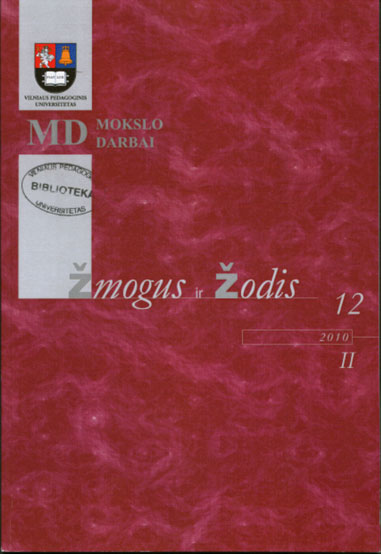Johno Bartho „prisotinimo“ literatūra: herojų parodija romane „Ožkavaikis Džailzas“
John Barth’s Literature of “Replenishment”: the Heroes’ Parody in the Novel “Giles-Goat Boy”
Author(s): Daina MiniotaitėSubject(s): Literary Texts
Published by: Vytauto Didžiojo Universitetas
Keywords: humanistic postmodernism; literature of “exhaustion”; literature of “replenishment”, Bildungsroman; hagiography; monomyth; dualistic world outlook; deconstruction of binary oppositions.
Summary/Abstract: The article focuses on the analysis of John Barth‘s (1930) – one of the leading postmodern American writer’s – novel Giles Goat-Boy (1966) in an attempt to introduce the Lithuanian reader to the novel and to illustrate Barth’s idea of the literature of “replenishment”. In the novel the writer transforms and parodies the “exhausted” literary genres and forms: monomyth, ancient myth, hagiography of the Middle Ages, 18th century Bildungsroman. However, Barth’s interest lies not in the outer, historical aspect of the chosen myths, but their philosophical, psychological, and aesthetic significance. By means of hagiography – the lives of Saints – Barth criticizes a dualistic world outlook, and portrays individual as a combination of binary oppositions which do not negate but complement each other. Elements of science fiction (cyber novel) in the work convey ironically the essence of a postmodern consumer technocratic society where individual acquires a sense of spiritual impotence and unauthenticity. The use of monomyth reveals contemporary individual’s artificial existence as a blind imitation of already created life schemes. And the parody of Bildungsroman encourages individual to resist the already created schemes of life, and stresses the significance of a person’s unique experience and intellect.
Journal: Žmogus ir žodis
- Issue Year: 12/2010
- Issue No: 2
- Page Range: 21-26
- Page Count: 6
- Language: Lithuanian

